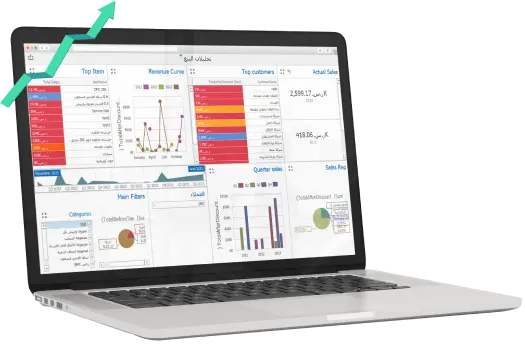Accounts payable reconciliation is one of the most important functions that must be performed by the accounts payable accountant during each fiscal period, and this is for auditing and ensuring that the accounts payable (AP) balance that appears on the balance sheet is correct and a reconciliation form must be created by the balance of each supplier separately and give it to the company’s procurement officer to reconciliation it with the supplier, the supplier seals the reconciliation, and even if there are differences that he writes, the procurement officer should get a statement for the period from each supplier, in the case of differences in the balance between the company's accounts and according to the supplier, auditing and determine the reasons for the difference be made but
There must be a statement from the supplier for the period during which the reconciliation is made with the supplier’s statement of for the same period
It is confirmed that the opening balance is reconciliation in the company’s accounts and the accounts payable, the invoices and their date are audited, and the returns and payments to the supplier are also audited and when auditing, the audit must be accurate to determine the reasons for the differences in the sense that the value of each invoice recorded in the company’s accounts and its value in the supplier’s statement is audited because the difference in the invoices may be a mistake in recording the invoices, either to your company or to the supplier, also, the difference in the calculated value-added tax (VAT) amount (e.g. the tax is calculated after the deduction if applicable)
Also, maybe the difference in the amount of the tax of withholding and collection in the sense that the suppliers mostly record the invoice without deducting the amount of the tax of withholding and collection and the difference can be in the return value recorded in the company’s ledger of a different value from the accounts payable ledger and this is a mistake for one of the parties and either the difference in the returned quantity or the difference in the value of the price at which the return was recorded, it is necessary to audit all returns and reference to the return vouchers that were recorded and determine whether the mistake is from the company or the supplier
And also one of the most important reasons for the difference in the balance between the company’s accounts and the accounts payable, which is the amount of the recorded payments, whether in the company’s accounts or the accounts payable, and therefore must be reconciled them and made sure that they are recorded properly, and also the difference can be the result of the check being paid, for example, the date of its write 25/10/2019 but the check’s due date is 11/25/2019, therefore, a difference shows a result of recording the check in the company's accounts on October, at a value of 50,000, for example, by the following journal entry
|
Account |
Debit |
Credit |
|
Accounts payable |
50000 |
|
|
Note Payable |
50000 |
However, in the accounts payable ledger when the check is collected, it will be recorded on the due date of 11/25/2019 and this is one of the reasons that make the balance non-reconciliation in some periods and therefore it is necessary to audit accurately to find out the reasons for the difference in the balances and it is often a difference in the date recording to the company's accounts and accounts payable.
Accounts Payable Trial Balance and Monitoring Debt
Most accounting software or all accounting software must be in the accounts payable system to be flexible and effective so that there are accounts payable statement (subsidiary ledger) and be well detailed so that the date of each invoice or references or discount from the supplier is also recorded by the supplier and must be explained in the statement, an explanation of each process recorded in accounts payable statement so that it can be referenced to at any time possible, the subsidiary ledger account (accounts payable statement) must be linked to the accounts payable subsidiary trial balance properly to make sure the balances at any time, accounts payable trial balance is very important to be audited daily by the accounts payable accountant and make sure that the journal entries and accounting treatments for the previous day, for example, they were properly recorded in the subsidiary ledger accounts, and they were posted to the accounts payable trial balance.
And the correct trial balance enables the finance department to prepare a cash budget properly, and the accounts payable accountant must monitor the accounts payable by following the credit periods and the credit limit granted by the suppliers to the company and that the payment is paid on the due date.
Accounts Payable (AP) - Advance Payments
The nature of the accounts payable that it is in the current liabilities and that it appears as credit, but in some cases the account payable may appear as debit in the trial balance and this can be because in some cases the supplier requires that to be paid in advance, for example, and until the end of the fiscal period, the supplier did not supply the goods and therefore still the balance debit by the payment amount to which it is paid, one of the duties and responsibilities of the accounts payable accountant is to audit the receivable balances of the suppliers and monitor with the procurement department the reasons for the supplier not supplying the goods and the reasons for delaying it, he must inform the senior management of that and in relation to the debit balances in accounts payable at the end of the year has to be closed in accounts payable (AP) - advance payments within other receivables in the current assets and it must be the balance of the accounts payable trial balance is only debt to suppliers means must be credit balances to the company.
Journal Entry
|
Account |
Debit |
Credit |
|
Other Receivables |
XXX |
|
|
Accounts Payable (AP) - Advance Payments |
XXX |
|
|
Accounts Payable (Debit balances) |
XXX |
|
|
Accounts Payable ****** |
XXX |
In the new fiscal year, the journal entry is reversed and the balance is refunded to the accounts payable.
Accounts Payable Accountant & Reports
The accounts payable accountant must have a set of purchases and payments reports, there must be reports of purchases by (amount and quantity) for each inventory line item whether raw materials or picking and packing, spare parts and supplies, as well as the prices of these items and their trends to increase or decrease, also reports of the withdrawals from each supplier separately, and analysis and statement of the company's main suppliers.
One of the most important reports that the accounts payable accountant who must create is liabilities report that the company incurs by its due dates and these are requested by the budget management of the company or the financial manager to determine the required liabilities of the company during the next period and accounts payable aging report according to the payment terms 30/60/90 days.










